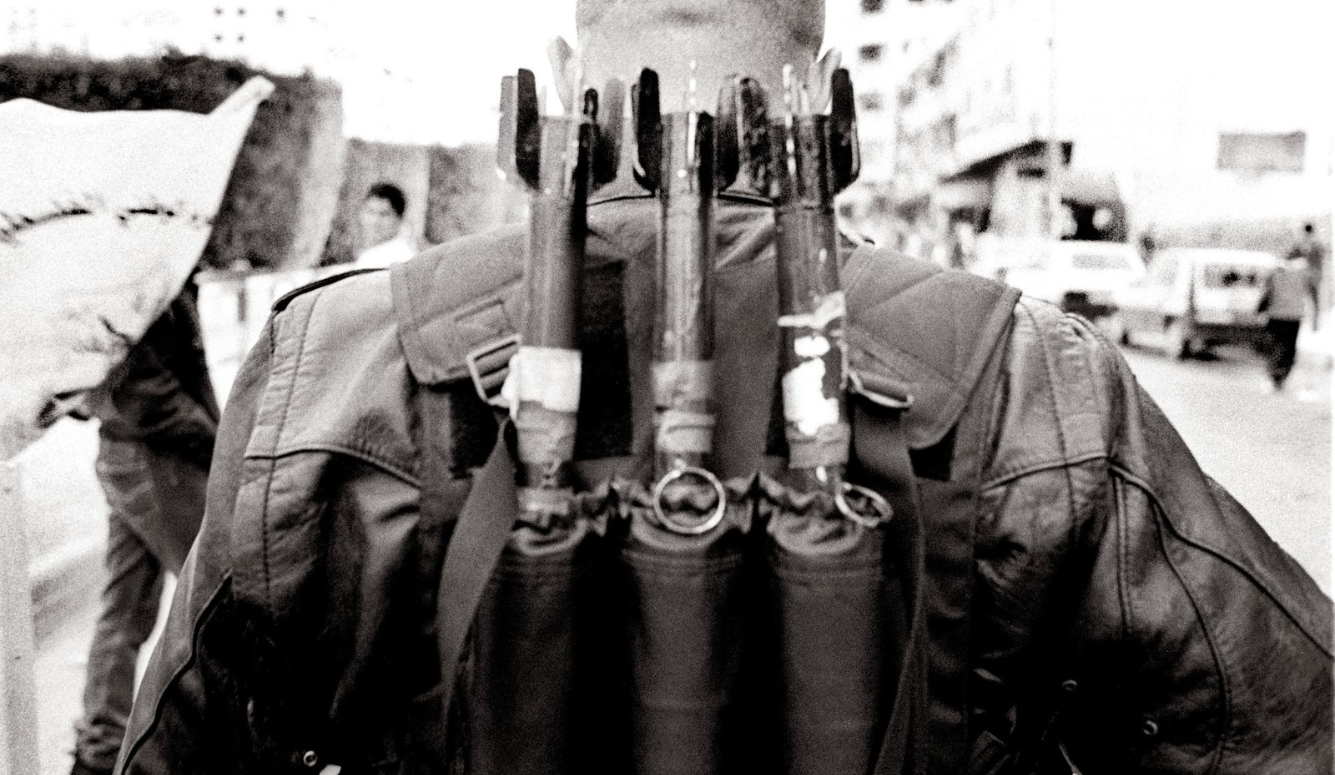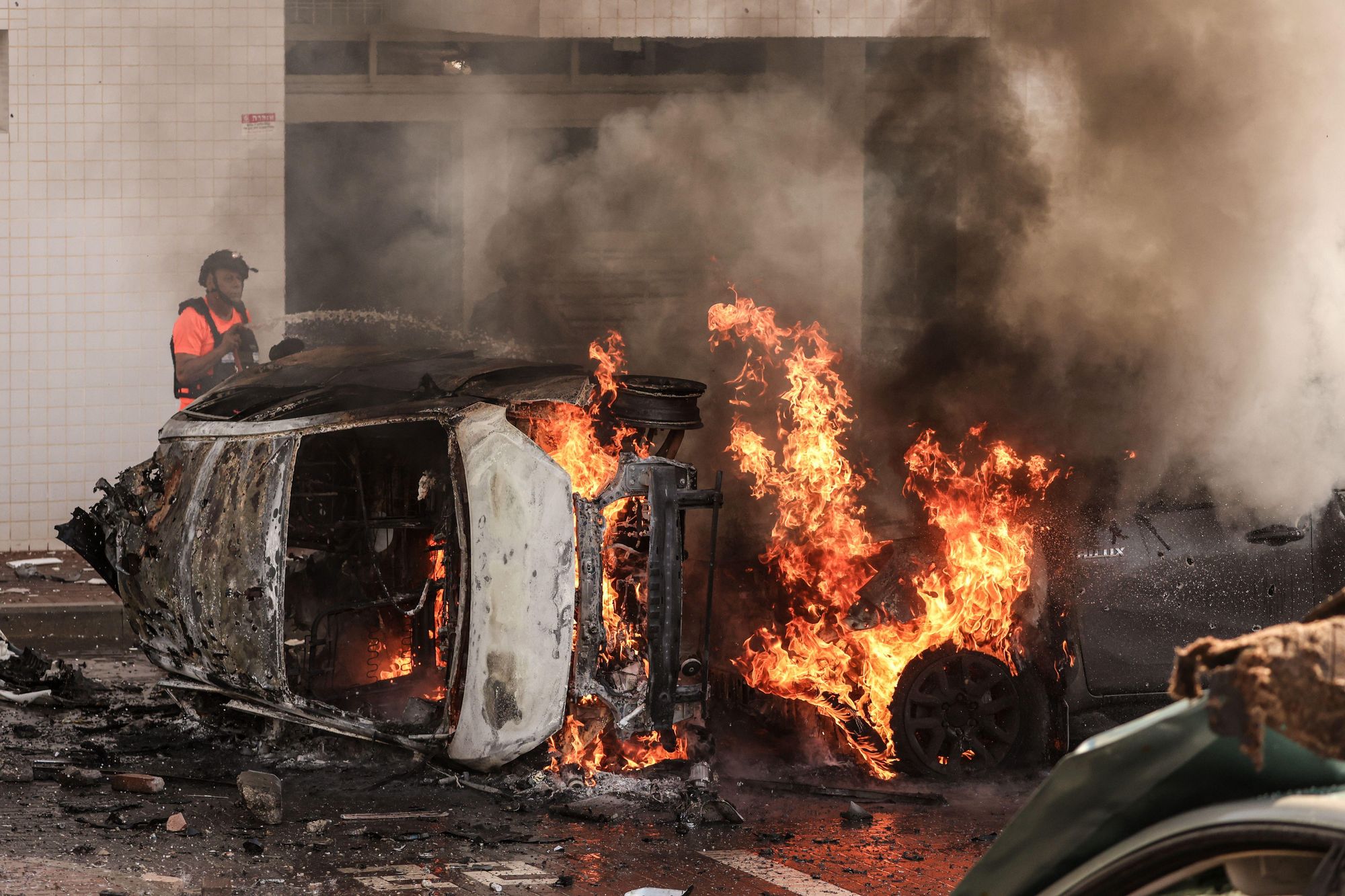Politics
A Different Concept of Death
An interview with author and intellectual Paul Berman about Hamas’s ideology and Western blindness.

Editor’s note: The following interview was originally published in German translation by Swiss daily newspaper Neue Zürcher Zeitung on October 24th. It is reproduced here with their kind permission, retranslated into English.
After the attacks of September 11th, 2001, New York author and journalist Paul Berman explored the roots of Islamist terrorism in Terror and Liberalism. In that New York Times bestseller, Berman examined the connections between radical Islam and European totalitarianism. Speaking from New York, he explains how Hamas’s terrorism fits into this picture. The interview was conducted by Andreas Scheiner.
Andreas Scheiner: The Hamas terrorist attack is seen as an attack on Israel. But shouldn’t we view it in a wider context? Is October 7th comparable to September 11th or the Islamist attacks in Paris in 2015?
Paul Berman: I think you’re right. I consider it a mistake to interpret Hamas solely as a local nationalist movement. The establishment of a conventional Palestinian state would not satisfy their demands, not in the long run.
AS: Hamas thinks bigger?
PB: Yes, it is part of a larger international Islamist movement. The ultimate goal of Islamism is to establish a certain type of Islam throughout the Muslim world and, in some of the Islamist interpretations, beyond. Let’s not forget that Hamas interprets Zionism as a worldwide conspiracy against Islam, not just as a local matter. This means that Hamas’s struggle inevitably has a global dimension. Hamas resembles its ally, the Lebanese Hebollah, in that respect—though Hezbollah has been keener on conducting terrorist operations in remote parts of the world.
AS: Islamic terrorism often relies on suicide attacks. Was the Hamas attack different? Or did the attackers not expect to come out alive?
PB: Indeed, the attack was carried out in the mode of a suicide operation. I’m not entirely sure how many of the attackers actually survived. We do not have precise numbers.
AS: How do you determine that it was a suicide operation?
PB: You just have to look at how Hamas operated. The attackers entered a kibbutz, went into houses, and stayed there for many hours until the Israeli army arrived and there was a shootout. If they had wanted to survive, they wouldn’t have remained. They would have killed as many people as possible as quickly as possible. Then they would have retreated to Gaza. But they stayed. So, we see a characteristic of Islamist terrorism, whose primary goal is to create a massacre.
AS: It’s explicitly about violence?
PB: Yes, and the second goal is to enable the terrorists to die as martyrs. Even though it’s difficult for us to understand. On September 11th, America was completely surprised by terrorism because it couldn’t imagine a suicide attack.
AS: Was it similar in Israel?
PB: It’s more complicated there. The Israeli army has understood the nature of this ideology. I think the following happened: There are two types of war. Conventional war, in which both parties have a similar concept of death. And the other war, in which one party doesn’t share the concept.
AS: Israel underestimated the fatalism of the enemy?
PB: The Israelis thought they had introduced a kind of language to communicate with Hamas. Hamas commits a terrible act and the Israelis retaliate. They know they can bomb this or that, but not more because that would break the implicit deal. For some years, the Israelis thought that Hamas had entered into this comparatively uncomplicated form of war.
AS: The Israelis became careless?
PB: Yes, even Netanyahu, who always presented himself as the sophisticated realist who, unlike the naive liberals, understands the fundamentalism of the movements that attack Israel. But he turned out to be the same kind of naive fool that he used to rail against.
AS: He forgot that Hamas has a different concept of death?
PB: You see, Hitler also had a different concept of death. Hitler didn’t want to force his enemies, who were the Jews, into an agreement; he wanted to exterminate his enemies. In the end, he and the top leaders of the Nazi party committed suicide. So, he wanted his enemies to die, and if they didn’t die, he wanted himself and his entourage to die. Which is not so far from the Hamas idea. Hamas has learned quite a bit from the Nazi idea.
AS: You need to explain that.
PB: Hamas is an offshoot of the Muslim Brotherhood in Egypt. The Muslim Brotherhood emerged in the 1930s as an Islamic fundamentalist renewal movement, but it became a mass movement by absorbing a number of European ideas. Mussolini and Hitler wanted to “cleanse” society by resurrecting the Roman Empire in some kind of modern version. Hassan al-Banna was the founder of the Muslim Brotherhood, and he entertained a similar cleansing fantasy, only, in his case, he wanted to revive the Islamic empire of the Prophet Mohammed.

AS: Did he draw upon the ideas of the fascists?
PB: He invoked Mussolini, and he invoked Hitler, whom he admired especially. And he promoted a cult of death, as the European fascists did. But he did it in his own style. “Martyrdom on the path of God is our greatest hope,” was Banna’s slogan. The greatest theorist of the Muslim Brotherhood was Sayyid Qutb, who happened to be a scholar of English Romanticism, as well. Qutb deepened the cultural and psychological ideas of the Brotherhood, again in a style that is bound to seem recognizable to anyone who knows the European literature. And he brought all of this together in his thinking about the Jews.
AS: What did this thinking look like?
PB: A central document of European antisemitism is the Protocols of the Elders of Zion, a notorious fabrication, which postulates a Jewish conspiracy to impose a wicked domination of the world. The Protocols were Hitler’s favorite text, and the German government in his era distributed it in Arabic translation to the Arab countries. Qutb drew on the Protocols in formulating his own supernatural conspiracy theory of Jewish evil, according to which the Jews began to conspire against Islam in the seventh century in Medina, and continued to do so until modern times, with the intention of annihilating Islam.
AS: So, Nazi thinking infiltrated Islamist movements?
PB: Yes, Qutb, the Muslim Brotherhood, and their fellow thinkers among the Palestinians arrived at an idea of Jewish evil that is not so deeply rooted in Islam. In traditional Islam, the Jews play a different role, not that of an all-powerful and frightening cosmic enemy. The idea that the Jews are all-powerful and cosmically frightening is pretty much a European idea.
AS: Why is this important in relation to Hamas?
PB: Hamas has fully embraced these ideas. You can see that in their founding charter from 1988. The charter, or “covenant,” begins with a quotation from the Quran, followed by a quotation from Banna about the obliteration of Israel. The cultural and psychological analysis that follows seems to come from Qutb, or from thinkers with similar views. And the charter goes on to invoke this strictly European document, the Protocols of the Elders of Zion.
AS: Hatred of Jews is openly declared.
PB: Article Seven of the charter calls for the extermination of Jews. Today, it is said that Hamas is a response to the terrible things that Israel has done to the Palestinians since 1948. But these ideas about the Jews do not come from 1948. The ideas are an infernal mix of Islamic fundamentalism and Nazi ideology of the 1930s and 1940s, elaborated in later years by various people, and then adopted by Hamas in the late 1980s.
AS: So, the ideology of Hamas is not a response to Israeli violence?
PB: No, the ideology of Hamas, in its basic concept, is a pre-Israeli doctrine. It is a cause of the violence, not a response to it. The Jews from the Arab and Muslim world who fled to Israel—this flight which began well before the founding of Israel—fled from exactly this doctrine. However, this insight seems to have been lost because people do not want to accept that doctrines or ideologies can be the cause of violence.
AS: You wrote about the suicide bombings in Israel 20 years ago. You noticed that, during the terrorist attacks, the popularity of the Palestinian cause increased. The same phenomenon can be observed today.
PB: On a much larger scale, yes. This enthusiasm of people at the spectacle of a mass pogrom against the Jews, the excitement it arouses—this is indescribably shocking. But it was foreseeable.
AS: You pointed out at the time that every act of terror had been taken as evidence of how evil the Israelis must be. The twisted logic: The more extreme the terror, the greater the guilt of the Israelis.
PB: Yes, the thought is: What led the attackers to commit these terrible massacres? It must be something terrible that was done to them. And so we always hear about the terrible things that were done to the Palestinians. Of course, terrible things were done to the Palestinians. But many populations have undergone terrible things without responding by committing massacres.
AS: Does the thought fall short?
PB: Yes, here is a movement, Hamas, that is openly committed to a racist and genocidal ideology. But many people do not want to let go of their idea that the world is a place where there are simple causes and effects, and the causes are always material, and doctrines do not count for anything.
AS: Now we see that people still think that way.
PB: And that will continue to be the case. People are blind to the ideology at work here. You can see it in the media, which are often naive. You can see it on the radical Left, but also among reasonable people who don’t want to acknowledge the ideological thinking. Therefore, the impulse to be blind encounters very little resistance. Very little progress has been made since September 11th, 2001, in this regard, which is truly distressing.
AS: Do you have much hope?
PB: I don’t want to put it like that, but... no, I don’t have much hope.






